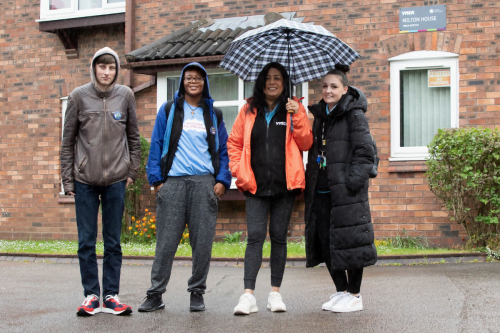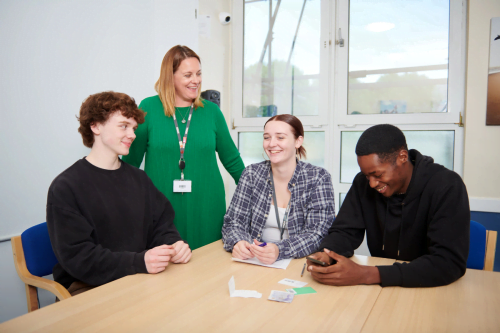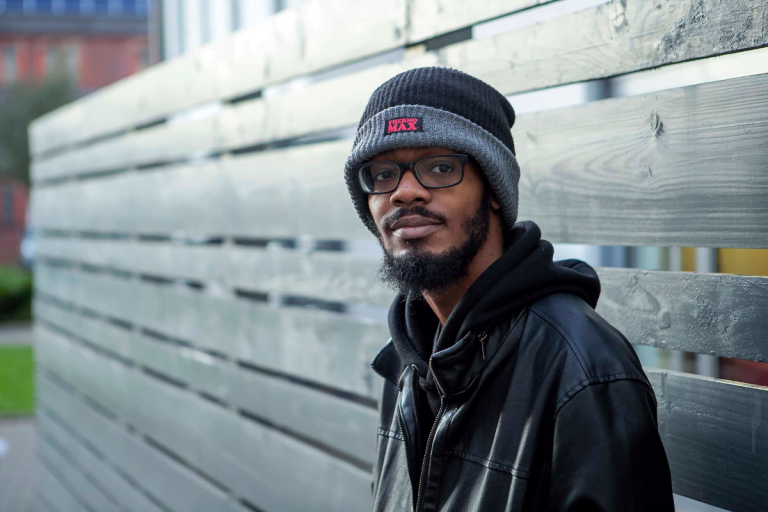In light of the recent statement from the Home Secretary that homelessness is ‘a lifestyle choice’, we’re revisiting our myth busting blog. There are many misconceptions about youth homelessness. Young people facing homelessness, or those at risk of it, often face stigma due to unfair stereotyping or genuine ignorance. Below, we tackle some of the most common ones.
Myth: “Being homeless is a ‘lifestyle’ choice”
FALSE! No one chooses to be homeless! Almost 136,000 young people faced homelessness in the UK last year and approached their local authority for help, that’s a 5% increase on the previous year and is the highest figure ever recorded. That’s 1 in 52 young people who need support because they’re either homeless or at risk of it. Young people face homelessness for many reasons, because they’re no longer able to live with their families, are fleeing domestic abuse, or are evicted as rents rise beyond their means. Whatever the reason, ‘lifestyle choice’ isn’t one of them.
Myth: “You’re only homeless if you sleep on the streets”
FALSE! The most common myth about homelessness is that it is rough sleeping. When we think of homelessness, we imagine people in sleeping bags, huddling in doorways, but this isn’t the whole picture. Young people are often ‘hidden homeless’, sleeping on friend’s sofas or floors, staying in hostels and b&bs, or in exploitative, sex for rent, situations. Stepping in before street homelessness prevents a young person from becoming truly vulnerable. Giving a young person a safe home, at this crucial point in their lives, can totally change their future and break the cycle of disadvantage and homelessness.

Myth: “Putting young people in hotels solves homelessness.”
FALSE! Hotels are only appropriate in emergency situations. Young people facing homelessness need more than just a roof over their head. Young people do not leave home, in an unplanned way, without good reason. Given that most will have experienced some level of trauma, they need housing which includes support, advice, and guidance from caring and trained staff. A stable and supportive home enables these young people to get back into education, training or employment, and develop the life skills they’ll need to live independent lives.
Myth: “They’re only homeless because they’re bad kids or have chosen to be homeless.”
FALSE! We’ll say it again. No young person chooses to be homeless. The reasons for leaving home are often complicated, and, sometimes their behaviour is a factor, but it is never simple. The worst outcome for a young person making ‘bad’ choices is to be homeless and without support. All children and young people deserve love and care, and while some may have complex needs, being homeless can only make their situation worse. By supporting all young people at this crucial stage of their lives we can break the negative cycle they’re in. 89% of young people living with us ‘move on’ successfully to independent living.

Myth: “People are homeless due to drink and drug problems”
FALSE! This is a real ‘chicken and egg’ myth. Although, some young people facing homelessness have substance misuse issues, many develop them as a consequence of facing homelessness, or, because they’ve used drink and drugs as a way of dealing with childhood trauma. There is a much stronger link between poor mental health and homelessness. In the UK, 20% of those facing homelessness are aged 16 to 24, and of those, 68% have mental health issues. Giving young people a stable and supportive home, enables them to get the emotional and mental health support they need. Improving their wellbeing is the best defence against both long term substance misuse and homelessness.
Why should I care?
Many factors, ranging from relationship breakdown to abuse, can contribute to a young person facing homelessness. Without a stable home, many will be unable to continue with education or employment. On top of this, when a young person is in crisis, they are far more vulnerable to exploitation, further abuse, or substance issues. This can become a vicious cycle leading to mental health problems, poverty, and extended homelessness.
We work to break that cycle and provide holistic support to ensure that they can build a brighter, independent future for themselves.


